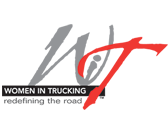 On a recent business trip, I started reading The Power of Habit: Why We Do What We Do in Life and Business by Charles Duhigg. It turned out to be a page-turner that I didn’t want to put down. Duhigg, a NY Times reporter, explores the science behind habits by telling incredible stories that really drive home how habits have a huge impact on our lives and our businesses. Duhigg argues that in almost any scenario in life, habits can be changed, provided we know how they work. For me, one of the most powerful stories he told was about Paul O’Neill, a former CEO of Alcoa, Inc.(Aluminum Company of America).
On a recent business trip, I started reading The Power of Habit: Why We Do What We Do in Life and Business by Charles Duhigg. It turned out to be a page-turner that I didn’t want to put down. Duhigg, a NY Times reporter, explores the science behind habits by telling incredible stories that really drive home how habits have a huge impact on our lives and our businesses. Duhigg argues that in almost any scenario in life, habits can be changed, provided we know how they work. For me, one of the most powerful stories he told was about Paul O’Neill, a former CEO of Alcoa, Inc.(Aluminum Company of America).
In 1987, when O’Neill was introduced at a shareholders meeting as the new Chief Executive Officer, he shocked investors by standing at the podium and talking about improving worker safety instead of improving the company’s market share and profits. Investors thought he was crazy; some panicked and sold all of their stock, certain that with O’Neill at the helm the company was going down.
But, O’Neill’s unwavering focus on worker safety habits proved to be an incredible profit-generating strategy. By implementing proper safety procedures, O’Neill streamlined production. Duhigg writes: “Costs came down, quality went up, and productivity skyrocketed.” Each safety measure ended up helping profitability in some way. Why? Because O’Neill’s safety program was a habit that bled over to every other habit. Elements of the safety program like shorter feedback loops, safer machinery, and an employee suggestion system, improved the corporate culture and helped Alcoa rise to the top of their industry. Duhigg writes: “Small wins fuel transformative changes by leveraging tiny advantages into patterns that convince people that bigger achievements are within reach.”
O’Neill held fast to his principles to create major transformation. He fired a star manager who didn’t report an accident within 24 hours (a cardinal safety program sin); he gave every line worker his home number and encouraged them to call him with proactive safety suggestions or to report any manager who wasn’t following safety protocol to the letter. Workers started calling, but not just to talk about safety accidents. They had other great ideas they wanted to share. Duhigg writes:
“The Alcoa plant that manufactured aluminum siding for houses, for instance, had been struggling for years because executives would try to anticipate popular colors and inevitably guess wrong. One day, a low-level employee made a suggestion that quickly worked its way to the general manager: If they grouped all the painting machines together, they could switch out the pigments faster and become more nimble in responding to shifts in customer demand.
Within a year, profits on aluminum siding doubled. “It turns out this guy had been suggesting this painting idea for a decade, but hadn’t told anyone in management,” an Alcoa executive told me. “Then he figures, since we keep on asking for safety recommendations, why not tell them about this other idea? It was like he gave us the winning lottery numbers.”
Although O’Neill is no longer CEO, the habits he implemented lived on. In 2010, 82 percent of Alcoa locations (with employees handling molten aluminum!) had 0 employee days lost due to injury. One Alcoa executive tells how he made the decision to remove prime reserved employee parking spaces. He wanted the people who got to work early, not the people with the most important titles, to get the best parking spots. He said: “Everyone understood the message: Every person matters. It was an extension of what Paul (O’Neill) was doing around worker safety. It electrified the plant. Pretty soon, everyone was getting to work earlier each day.”
Since reading the book, I’ve been looking for ways the Matchmaker team can make small changes that will improve our business practices and our lives. To read the excerpt of Duhigg’s book I’ve referenced, click here. Meanwhile, enjoy these choice quotes from The Power Habit that caught my attention:
- Most of the choices we make each day may feel like the products of well-considered decision making, but they’re not. They’re habits.
- Habits are technically defined as: the choices that all of us deliberately make at some point, and then stop thinking about but continue doing, often every day.
- Change might not be fast and it isn’t always easy. But with time and effort, almost any habit can be reshaped.
- Champions don’t do extraordinary things. They do ordinary things, but they do them without thinking, too fast for the other team to react. They follow the habits they’ve learned.
- Simply giving employees a sense of agency- a feeling that they are in control, that they have genuine decision-making authority – can radically increase how much energy and focus they bring to their jobs.
Practice good habits this weekend,
~Bob








